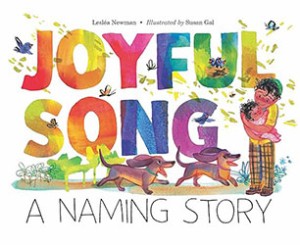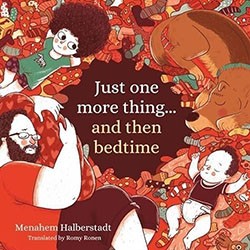Sheri Sinykin’s newest novel artfully combines several issues of great interest to middle-grade readers. Eleven-year old Jacob “Cobber” Stern lost his mother six years ago and his memory of her is gradually fading, a loss nearly as painful as her death. Cobber’s father’s own grief has made him emotionally unavailable, and even Cobber’s best friend — newly enrolled in Hebrew school — has become less accessible to him, becoming a source of sadness to him. The most stable anchor in the boy’s life is his ninety-nine-year-old great-grandfather, but recently his memory lapses and accidents have forced Cobber to confront the possible loss of one more person in his life. Childhood depression, coming to terms with death, and issues of Jewish identity all find expression in this believable and sensitive story of one boy’s life, as he learns to seek and accept support for the life events which overwhelm him.
The unusual placement of a great-grandfather, rather than grandfather, at the novel’s center, heightens the urgency of Cobber’s fears as well as the changing nature of Jewish American life. Set in the year 2000 in a small Wisconsin town with few Jewish families, Cobber’s story reflects the losses of connection with their past reflected in the Stern family’s tenuous self-definition as Jews. Papa-Ben, almost one hundred years old, still remembers life in Russia and his difficult process of assimilating after immigrating to the United States. His wife and children have died, making him “an old tree with no roots,” and his grandson Larry, Cobber’s father, has abandoned the Jewish practices with which was raised. Although Cobber attends Sunday school weekly to honor his late mother’s wishes, he balks at the idea of preparing to become a bar mitzvah when his best friend begins afternoon Hebrew classes in preparation for that milestone. When his English teacher asks Cobber and his classmates to write haiku poems about their identity, he is forced to admit that he feels no connection to anything larger than himself.
Rather than romanticizing an ostensibly richer Jewish past, the novel raises subtle questions about what it means to be Jewish when that identity is freely chosen. Challenging his father, Cobber asks if an obligatory bar mitzvah is truly important: “I can still be Jewish, right? Isn’t it like being white? A label? Something you just are?” His father’s tentative response that being Jewish can be much more than a meaningless category is unconvincing, given his own isolation from his community. There is no facile conclusion about what it means to be a Jew. Papa-Ben’s roots in the Jewish past have lost a viable context in the present, and their relevance to Cobber’s search for meaning is unclear. Sinykin presents Cobber’s struggle for his own solution, including a sincere form of personal spirituality within Jewish tradition, with subtlety and balance.
One of the greatest achievements of this book is the way in which Sinykin embeds the most profound questions about love, loss, what it means to be human and to be Jewish, within the intimate scale of one family coping under extreme pressures. There are moments of humor, when Cobber and his friend joke and tease one another, as well as scenes of heart-breaking sadness, as Cobber and his father attempt to cope with past losses and inevitable future ones. Papa-Ben and Cobber stand at opposite ends of the life cycle, alone in their mourning, but also embracing one another and finding strength in a common tie to Judaism.
Calling Cobber is highly recommended and includes an “Author’s Note” and a useful glossary of Hebrew, Yiddish, and other terms.
Emily Schneider writes about literature, feminism, and culture for Tablet, The Forward, The Horn Book, and other publications, and writes about children’s books on her blog. She has a Ph.D. in Romance Languages and Literatures.





